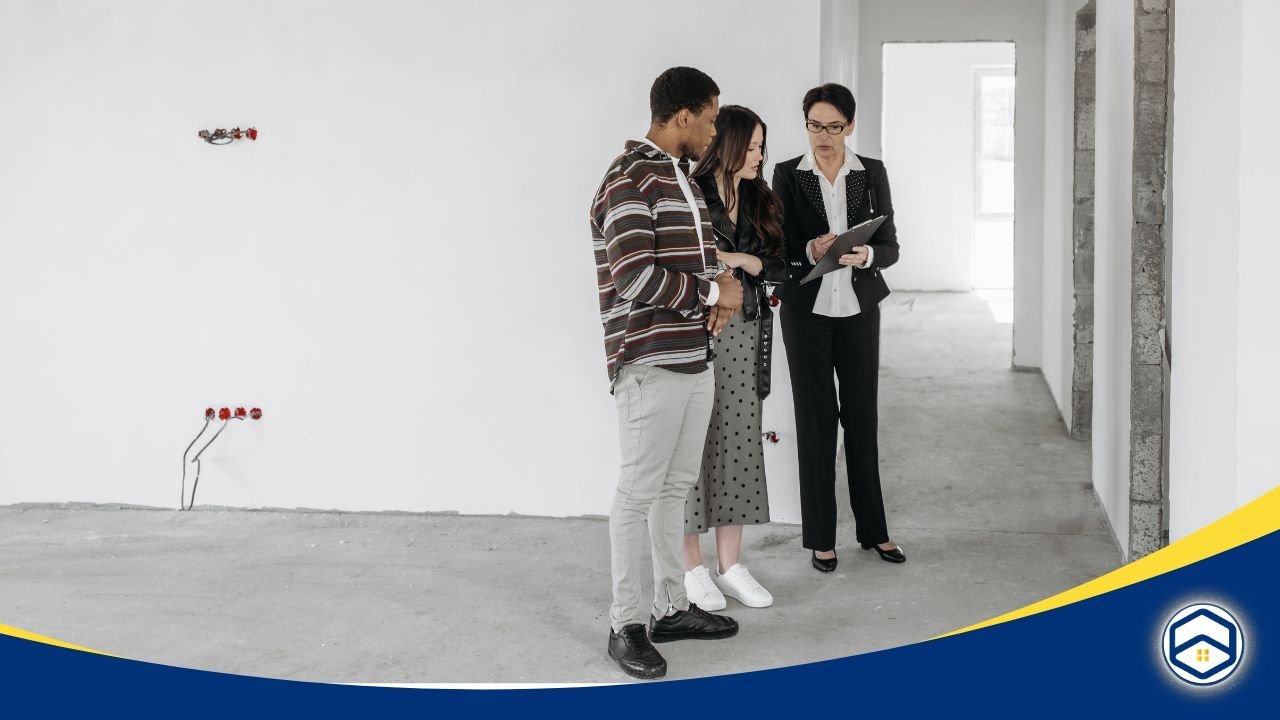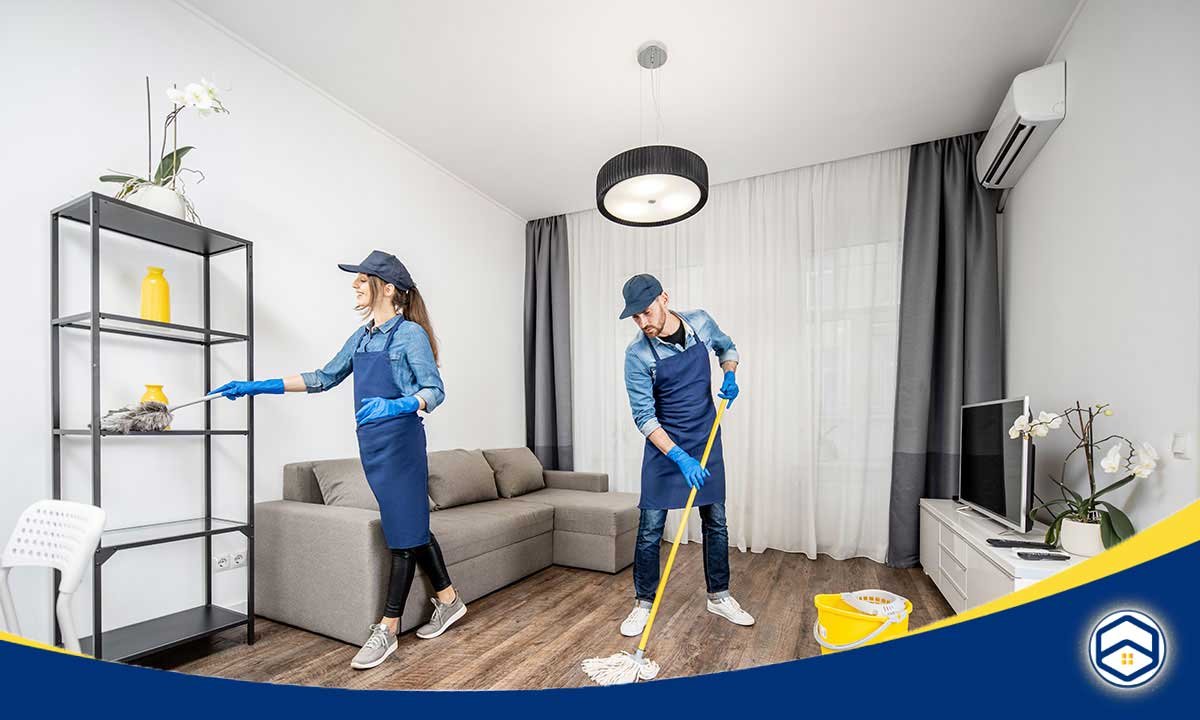In the dynamic world of real estate, fostering a positive and open line of landlord-tenant communication is crucial for a harmonious living arrangement. The key to a successful landlord-tenant relationship lies in clear and consistent communication. In this article, we delve into the significance of effective communication and provide practical tips for landlords and tenants to create a mutually beneficial living experience.
Understanding the Dynamics

Building Trust
In the intricate tapestry of landlord-tenant relationships, trust stands as the linchpin that fortifies the connection between these two integral parties. The crux of establishing trust lies in fostering open and transparent landlord-tenant communication channels. Landlords who actively engage in honest and clear dialogue create a foundation that not only withstands challenges but also paves the way for a harmonious living arrangement. Through consistent landlord-tenant communication, the mutual understanding of expectations, concerns, and preferences deepens, contributing to an atmosphere of trust and cooperation. This trust is vital for ensuring that both parties feel secure and valued, fostering a positive environment that extends beyond the lease agreement.
Setting Expectations
In the realm of property leasing, setting clear expectations from the outset is an indispensable component of a successful landlord-tenant relationship. Effective landlord-tenant communication transcends verbal exchanges; it is encapsulated in the meticulous crafting of a comprehensive lease agreement. This legal document serves as a blueprint, delineating the terms, responsibilities, and policies that govern the landlord-tenant dynamic. By explicitly detailing expectations, potential sources of conflict can be mitigated, and a solid framework for smooth cohabitation can be established. In this context, landlord-tenant communication becomes a proactive tool for preventing misunderstandings, as tenants gain a clear understanding of their rights and responsibilities, leading to a more transparent and accountable leasing experience.
Landlord’s Role in Communication

Regular Updates
In the dynamic dance between landlords and tenants, regular updates, a fundamental aspect of effective landlord-tenant communication, emerge as a powerful catalyst for cultivating trust and fostering a sense of security. By keeping tenants well-informed about various property-related matters, landlords not only convey transparency but also demonstrate a commitment to tenant well-being. Engaging in consistent landlord-tenant communication is pivotal, as it involves not only disseminating information but also building a bridge of understanding.
Whether it’s sharing maintenance schedules, notifying of upcoming inspections, or communicating policy changes, these regular updates serve as a lifeline for maintaining an informed and harmonious living environment. In essence, this type of landlord-tenant communication becomes the cornerstone for establishing a robust foundation that goes beyond the physical walls of the property, creating a living environment where tenants feel not only secure but truly connected to their homes.
Responsive Communication
In the intricate tapestry of property management, responsive communication plays a pivotal role in fostering harmony between landlords and tenants. Addressing tenant queries and concerns promptly is not merely a transactional task; it is a manifestation of a landlord’s commitment to tenant satisfaction. Timely responses to inquiries not only resolve issues efficiently but also contribute to building a positive rapport. This open line of communication encourages tenants to feel heard and valued, creating a collaborative atmosphere where concerns are addressed in a constructive and timely manner. Responsive communication, therefore, becomes a linchpin for maintaining a harmonious living environment, as it builds a foundation of mutual respect and understanding.
Maintenance Communication
In the intricate tapestry of property management, landlord-tenant communication, specifically responsive communication, plays a pivotal role in fostering harmony between landlords and tenants. Addressing tenant queries and concerns promptly is not merely a transactional task; it is a manifestation of a landlord’s commitment to tenant satisfaction. Timely responses to inquiries not only resolve issues efficiently but also contribute to building a positive rapport. This open line of landlord-tenant communication encourages tenants to feel heard and valued, creating a collaborative atmosphere where concerns are addressed in a constructive and timely manner. Responsive communication, therefore, becomes a linchpin for maintaining a harmonious living environment, as it builds a foundation of mutual respect and understanding.
Tenant’s Role in Communication

Timely Rent Notifications
Tenants can significantly contribute to a positive landlord-tenant communication flow by proactively notifying landlords in advance about any potential delays in rent payments. This open and honest approach lays the groundwork for constructive dialogue and problem-solving. By engaging in timely rent notifications, tenants not only demonstrate a sense of responsibility but also enable landlords to manage their finances effectively. This type of proactive landlord-tenant communication fosters financial harmony and strengthens the overall landlord-tenant relationship, creating an atmosphere of trust and mutual understanding.
Reporting Issues
Tenants play a crucial role in maintaining the property’s integrity by promptly reporting any issues to the landlord, showcasing the importance of proactive landlord-tenant communication. This proactive approach not only prevents minor problems from escalating into major headaches but also ensures the property remains well-maintained. The timely reporting of issues contributes to a collaborative atmosphere, where both landlords and tenants actively work together to address concerns efficiently. In essence, this type of landlord-tenant communication is a proactive strategy that not only safeguards the property but also reinforces the sense of collaboration and shared responsibility within the landlord-tenant dynamic. By fostering open channels of communication, tenants become instrumental in preserving the property’s condition and contributing to a positive living environment.
Respectful Communication
In the symphony of landlord-tenant communication, the tone of interaction becomes a crucial note that resonates throughout the relationship. Maintaining a respectful tone in all communications, be it written or verbal, contributes significantly to fostering a positive atmosphere. Clear, polite, and respectful communication acts as a bridge that connects landlords and tenants in a harmonious dialogue. This type of interaction not only helps avoid misunderstandings and conflicts but also builds a foundation of mutual respect. By embracing respectful communication, landlords and tenants create an environment where open dialogue is encouraged, and differences are addressed in a constructive and considerate manner, leading to a more positive and collaborative living experience for all parties involved.
The Benefits of Effective Communication

Quick Conflict Resolution
In the intricate tapestry of landlord-tenant relationships, conflicts can arise, and the ability to address them promptly becomes a testament to the strength of landlord-tenant communication. Open communication is the linchpin that facilitates the swift resolution of conflicts between landlords and tenants. By fostering an environment where concerns can be raised without hesitation, both parties can collaboratively work towards solutions, ensuring a more amicable and stress-free living arrangement. This approach not only prevents minor disputes from escalating but also promotes a sense of trust and understanding rooted in effective landlord-tenant communication. Quick conflict resolution is a testament to the resilience of the landlord-tenant relationship, demonstrating the capacity of both parties to navigate challenges effectively and maintain a positive living experience. In essence, the effectiveness of landlord-tenant communication becomes evident in the seamless resolution of conflicts, contributing to the overall harmony of the living community.
Tenant Retention
Beyond the immediate resolution of conflicts, the impact of positive landlord-tenant communication extends to the realm of tenant retention. A positive communication experience significantly contributes to tenant satisfaction, fostering a sense of connection and well-being. Tenants who feel heard, valued, and respected due to effective landlord-tenant communication are more likely to renew their leases, contributing to increased tenant retention rates. The benefits of positive communication extend beyond lease renewals, paving the way for the development of long-term, positive relationships between landlords and tenants. This creates a sense of stability within the rental community, where tenants are more inclined to invest in the property and contribute positively to the overall living experience. In essence, positive landlord-tenant communication becomes a strategic tool for fostering loyalty, satisfaction, and the longevity of harmonious landlord-tenant relationships.
In the realm of landlord-tenant relationships, landlord-tenant communication is the linchpin that holds everything together. By fostering an environment of trust, setting clear expectations, and maintaining open lines of landlord-tenant communication, both landlords and tenants can enjoy a more positive and mutually beneficial living experience. Embracing effective landlord-tenant communication is not just a good practice; it’s a key strategy for creating a harmonious and thriving rental community. The synergy of landlord-tenant communication goes beyond mere interaction; it is the cornerstone for establishing a solid foundation where transparency, understanding, and collaboration flourish, ultimately shaping a positive and sustainable living environment for all parties involved.










